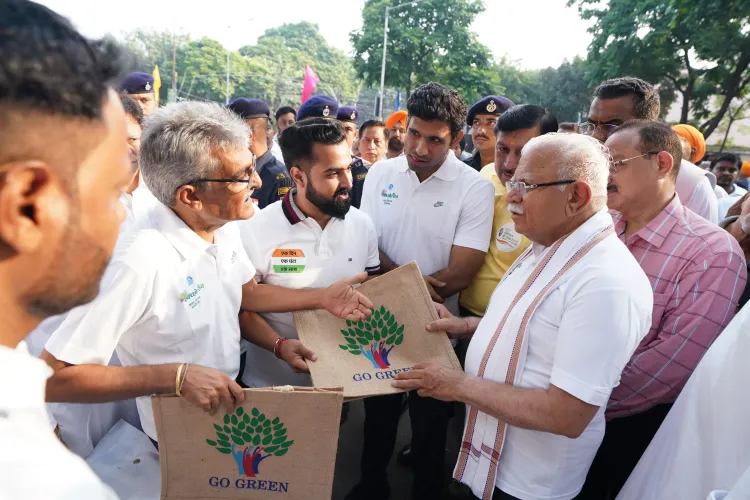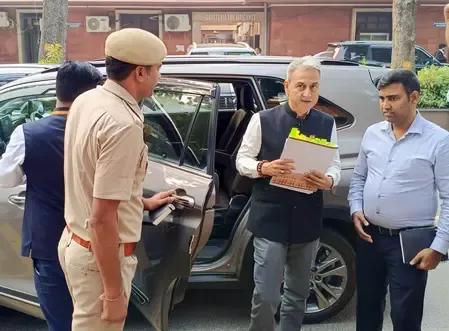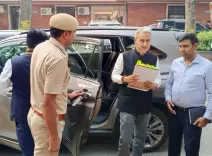Is 'Swachhata our culture' as Union Minister Khattar claims?

Synopsis
Key Takeaways
- Community involvement is crucial for the success of cleanliness initiatives.
- The Swachh Bharat Mission is a people's movement, not just a government effort.
- Active participation in shramdaan can significantly impact local environments.
- Encouraging eco-friendly practices is essential to combat pollution.
- Cleanliness should be integrated into daily life, not treated as a one-off event.
Chandigarh, Sep 25 (NationPress) Union Minister of Housing and Urban Affairs Manohar Lal Khattar inaugurated the Swachhata Hi Seva -- Ek Din, Ek Ghanta, Ek Saath Shramdaan campaign in Sector 22 today.
The event saw a large turnout of officials, residents, and volunteers, including Civil Defence and Safai Mitras, underlining the shared commitment to realizing a clean India.
A significant 'shramdaan' was carried out, with participants enthusiastically collaborating to clean the area.
In celebration of Pandit Deendayal Upadhyay's birth anniversary, the event commenced with a meaningful gesture of presenting a fruit basket to the daughter of a Safai Karamchari, followed by guiding the chief guest to the signature wall.
A distribution drive for cloth bags was also initiated to encourage eco-friendly practices and curb the use of single-use plastics.
The Union minister administered the 'Swachhata ki Shapath' to all attendees, motivating them to commit to cleanliness and sustainable living.
During his speech, Union Minister Khattar stressed the significance of community involvement in making the Swachh Bharat Mission successful.
He pointed out that cleanliness is not merely a government initiative but a civic movement that necessitates the active participation of every citizen.
Khattar remarked that while cleanliness was once overlooked, it has now evolved into a people's movement under Prime Minister Narendra Modi's leadership.
He emphasized, 'swachhata is our adornment, our culture, our nature, our karma, and our dharma. Without cleanliness, no achievement or expertise can truly shine.'
The minister provided relatable examples, stating that just as we are drawn to cleanliness in people and environments, this attitude should extend to homes, shops, places of worship, schools, hospitals, community centers, and public spaces.
He urged everyone to incorporate cleanliness into their daily routines rather than treating it as a one-off event. Former Haryana Chief Minister Khattar appealed to all sections of society, including citizens, traders, students, and media personnel, to actively engage in the cleanliness initiative, reminding them that real change occurs only when every individual contributes wholeheartedly.









